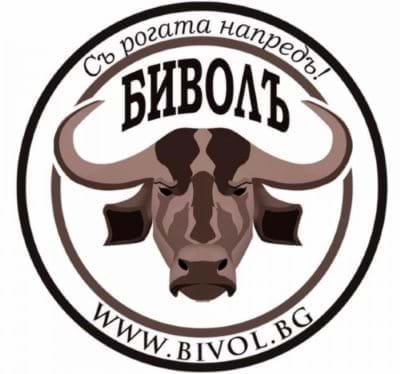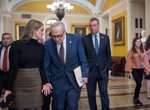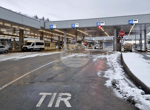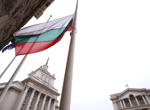Уважаема Госпожа Дей,
Прочетох с интерес интервюто в Euractiv с г-н Андреас Гайгер, лобист на българското правителство. Той твърди, че има достъп до кореспонденцията между ЕК и българското правителство по темите за борбата с корупцията и измамите с европейски фондове. Г-н Гайгер смята, че има проблем в комуникацията между правителството и ЕК.
Г-н Гайгер мисли също, че проблемите на България са преекспонирани и страната е несправедливо третирана, онеправдана спрямо съседна Румъния, където има същите проблеми с корупцията.
Но, един от проблемите на България, който Румъния не познава, е организираната престъпност и връзките й с високите сфери на властта. А когато организираната престъпност се смеси с властта, имаме мафия, а не просто организирана престъпност.
Г-н Гайгер не казва нито дума за това, но тази тема е редовно повдигана от европейските експерти и присъства в последния доклад на Комисията за България.
Българските управници също не обичат думата мафия. Те говорят свенливо за “организирани престъпни групи” и редовно обявяват окончателното им разбиване. Така е до следващия европейски доклад, който повтаря, че нищо не е свършено и че се очакват съдебни процеси и осъдителни присъди срещу “големите акули”, а не срещу дребните, съпровождащи ги риби.
Вие сте в течение, че ситуацията със свободата на словото и пресата в България също е деградирала, откакто страната стана член на ЕС. Наскоро един журналист беше пребит с чукове заради материалите си срещу корупцията и организираната престъпност. Натискът на мафията върху журналистите е константен в страната и ситуацията се влошава.
Адвокатският кабинет “Албер енд Гайгер” в Брюксел работи за сметка на българското правителство и българския данъкоплатец. Задавам си въпроса кой има полза от неговата работа? Дали това са българските данъкоплатци, които търпят несигурността и унижението да обитават страна проядена от мафията? Дали това са селскостопанските производители, които не получават евросубсидии заради големия брой измамници, спонсориращи политици с откраднатите европари, както показват разследванията на ОЛАФ?
Дали България ще може по-добре да се справи с проблемите си на терена, ако еврократите в удобните си кантори в Брюксел започнат да си затварят очите, вместо да изискват твърдо действия и резултати?
Струва ми се, че е необходимо ЕК да реагира на това интервю, за да потвърди оценката си за ситуацията в България изложена в последния доклад.
Също така, задължително е цялата кореспонденция между европейските институции и българското правителство да бъде публикувана. В противен случай имаме очевиден конфликт на интереси. Българското правителство плаща на агенция и я снабдява с цялата кореспонденция, за да лъска имиджа си пред Европа. В същото време неправителствените организации и гражданите, които работят за истински промени нямат достъп до нея, а българските институции систематично отказват да предоставят на пресата подробности за обмена на информация с Брюксел.
Публикуването на тази кореспонденция (минала и бъдеща) ще бъде полезно усилие за прозрачност и ще позволи на всички данъкоплатци да преценят каква е компетенцията, какъв е капацитетът и какви са намеренията на българските чиновници и политици. Защото именно те, толерирайки корупцията, измамите и мафията направиха България най-корумпираната страна в Европа според класацията на Transparency International. Те направиха така, че България е страната с най-ниска степен на медийна свобода, според класацията на “Репортери без граници”.
Позволете ми да считам, че ако Комисията не действа твърдо и прозрачно спрямо българското правителство, нещата няма да се променят. Напразни ще бъдат усилията на уважавани издания и скъпо платени лобисти да успокоят европейското обществено мнение, че дяволът на мафията и корупцията в България (наречен още “торбалан”) не е толкова черен.
Напротив, той е много черен и страшен. Българските граждани са първите, които страдат от “торбалана”, който има комфортни и доходни връзки в правителството. В същото това правителство, което плаща на брюкселското лоби. Тези връзки са видими с просто око за гражданите и обясняват тяхната оценка за управлението, което се радва на 6,5% доверие в проучванията.
По-ниско доверие, отколкото годишната инфлация в станата.
С уважение,
Атанас Чобанов, секретар на Съюз на Българите по Света “Бъдеще”, журналист и доброволен антиправителствен лобист
In English:
Dear Mrs. Day,
I read with much of an interest the interview in EurActiv with Mr. Andreas Geiger, a lobbyist for the Bulgarian government. He claims that he has access to the correspondence between the European Commission and the Bulgarian government on the topics concerning fight against corruption and frauds with European fund payments. Mr. Geiger considers that there is some kind of problem in the communication between the government and the European Commission.
Mr. Geiger also thinks that the problematic spheres of Bulgaria are portrayed in negative light and overreacted subsequently, and the country is unjustly treated and being wronged in comparison to neighbouring Romania, where problems with corruption are the same.
However, one of Bulgaria problems, which Romania is not acquainted to, is organized crime and its relations to the highest levels of authority. And when organized crime mingles with authority, we have got mafia, not simply organized crime.
Mr. Geiger does not say even a single word about it although the topic has been frequently raised to discussions by European experts and has been included in the last report of the Commission on Bulgaria.
The Bulgarian rulers of highest authority do not like the word mafia either. They talk shyly about “organized crime bands” and they often announce that the final smack on those groups has happened. Events will follow this course until the next report comes out, and it will repeat that nothing has been done, that some trials should have been started and some sentences should have already been passed on the “big sharks”, not on the small, accompanying fish.
You are aware that the situation with the freedom of speech and press in Bulgaria has also been degraded since the country became member of the EU. Recently a journalist was beaten black and blue using hammers because of his materials touching the topics about corruption and organized crime. The pressure the mafia exerts on the journalists has become a constant and the situation is getting even worse.
The Brussels law firm “Alber & Geiger” works at the expense of the Bulgarian government and taxpayers. I ask myself the following question – who has some benefit from its services? Is it the Bulgarian taxpayers, who stand the instability and humiliation to live in a country, deeply eaten through by mafia? Or is it the agricultural producers, who do not receive EU fund payments because of the great number of swindler, sponsoring the politicians with stolen EU fund money, as OLAF investigations show?
Do you think Bulgaria would be able to cope much better with its problem in this field if the eurocrats with the cozy offices in Brussels start blenching the facts, instead of persisting firmly on actions and results?
It seems to me that we are in need of the European Commission’s reaction to that interview in order to confirm its evaluation of the situation in Bulgaria, stated in the last progress report.
Furthermore, it is obligatory for the whole correspondence between the European institutions and the Bulgarian government to be published. Otherwise, we have conflict of interests obviously. The Bulgarian government pays to the agency and provides it with all the correspondence kept to have its European reputation polished. Meanwhile, the NGOs and the citizens, who work for the real changes to happen, have no access to it and the Bulgarian institutions systematically refuse to provide the press with more details on the information exchange with Brussels.
The publication of that correspondence (from the past and in the future) will be a useful effort to achieve transparency and it will allow all the taxpayers to judge on the competences, the capacity and the intentions of the Bulgarian officials and politicians. Because namely they, tolerating corruptions, frauds and the mafia, made Bulgaria the most corrupted country according to rating of “Transparency International”. It is their doing that Bulgaria has become the country with the lowest degree of freedom of speech according to rating of “Reporters without Borders”.
Let me consider that if the Commission does not act firmly and imposing transparency against the Bulgarian government, things will not change. All effort will be in vain – highly esteemed issues and expensively paid lobbyists trying to soothe the European public opinion that the devil of mafia and corruption in Bulgaria (also called “bogeyman”) is not so evil.
On the contrary, he is very evil and dreadful. The Bulgarian citizens are the first ones suffering from the “bogeyman’s” doings because he has some very useful and profitable strings in the government to be pulled. It is the same government that pays for the Brussels lobby. These strings are visible with naked eye by the citizens and they explain society’s approval of their government, which enjoys 6, 5% confidence according to researches.
This means lower credit of confidence than the annual inflation rate for the country.
Respectfully Yours,
***










